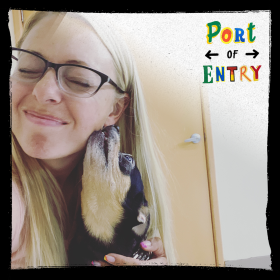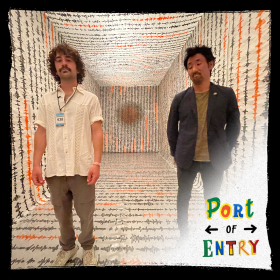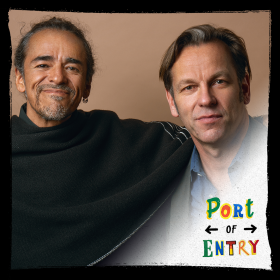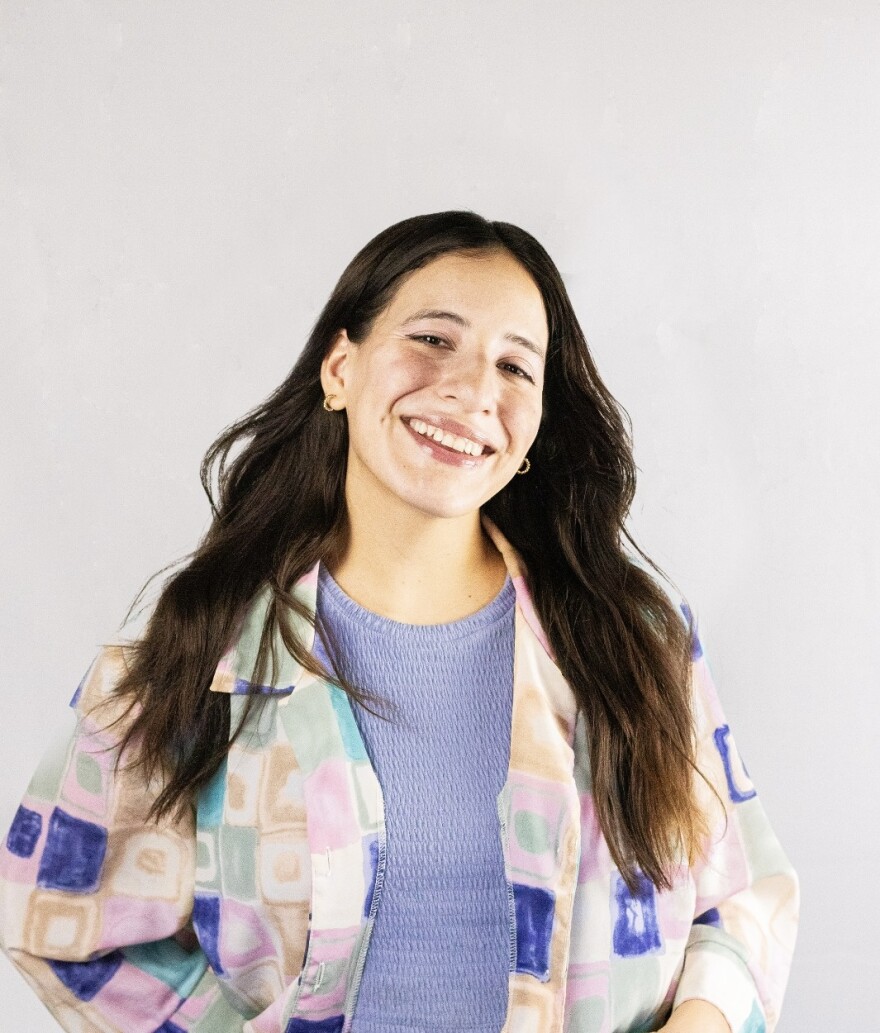Port of Entry
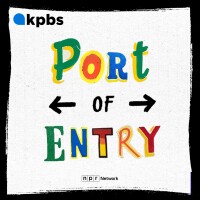
These are cross-border stories that connect us. Border people often inhabit this in-between place. From KPBS and California Humanities, “Port of Entry” tells personal stories from this place — stories of love, hope, struggle, and survival from border crossers, fronterizxs, and other people whose lives are shaped around the wall. Rooted in San Diego and Tijuana, we are a transborder podcast for transborder people. We live life on la linea.
Have you checked out our podcast in Spanish? If so, Take our survey.
¿Hás escuchado nuestro podcast en Español? Participa en nuestra encuesta.
Ways To Subscribe
-
Mexican musician Javier Bátiz could very likely have been world famous had he headed north of the border with his good friend and bandmate Carlos Santana back in the 1960s. But instead, Javier went south to Mexico City, where he built a successful career in the country he loves. In a new episode of “Port of Entry,” we look into how Javier’s life, decisions and decades-long musical career have brought him internal peace and fulfillment he says is far more important to him than reaching the high-level fame his friend Carlos found. Today’s story continues our new season of "Port of Entry" focused on artists and musicians who’ve turned pain into superpowers.
-
You know what they say about one man’s trash becoming another’s treasure, right? At the border, the journey from trash to treasure often involves an actual trip from San Diego to Tijuana, where things like furniture, appliances and other used or discarded objects find a second life. But, of course, those objects don’t move themselves. The whole cross-border, second-hand world involves people like Seth Sullivan, aka “Art Pusher,” one of the best-known “pickers” in the borderlands. Seth is a fireball who’s been through a lot in his cross-border life. But his struggles have only fueled him to keep going and growing. Today’s story kicks off a new season of "Port of Entry" focused on artists and musicians who’ve turned pain into superpowers. Follow Art Pusher on Instagram. *** “Port of Entry'' is written and produced by Kinsee Morlan. Emily Jankowski is the co-producer and director of sound design. Alisa Barba is our editor. Lisa Morrisette-Zapp is operations manager and John Decker is the interim associate general manager of content. This program is made possible, in part, by the Corporation for Public Broadcasting, a private corporation funded by the American people.
-
From PRX and KPBS, “Port of Entry” is back with a new season on Oct. 13. We’re bringing you stories of border artists and musicians who’ve turned pain into superpowers.
-
Film director and animator Jorge Gutierrez grew up crossing the border between Tijuana and San Diego almost every day. That cross-border experience can be seen in the work Jorge does today. Jorge is the director of the animated movie, “The Book of Life.” He’s also one of the creators of the hit Nickelodeon show “El Tigre.” And he’s got several new projects coming out on Netflix soon. One of those projects is “Maya and the Three,” an animated series that will be released on Netflix in October. In today’s bonus episode, which is a recording of a YouTube Live event we had over the summer, we talk to the famed animator about his new show, how his cross-border life has impacted his work and more.
-
In this bonus episode, meet a woman who takes people’s pets from San Diego to Tijuana for more affordable veterinary care. It’s a story about the great…
-
In a new “Port of Entry” bonus episode: One Baja chef’s pandemic story and the camera crew who followed it. Valle de Guadalupe has exploded over the last decade. It’s become a hugely popular wine and food destination for people from around the world. But when the pandemic hit, the flood of tourism to the culinary region just completely stopped at first, then slowly turned into a trickle. A new one-hour special on KPBS called “Ingrediente” tells the story of how Valle de Guadalupe chef Drew Deckman and his restaurant crew learned how to survive and even thrive through the ongoing pandemic. We talk to Deckman and the show’s producer, Jill Bond.
-
On August 18, 1971, First Lady Pat Nixon stood at the place at the southwestern most point of the U.S.-Mexico border and celebrated what was envisioned as "International Friendship Park.” That day, Nixon said, “I hope there won't be a fence too long here.” Flash forward 50 years, and the small barbed-wire fence that once demarcated the border has been replaced with two large fences, dozens of cameras, a watch tower and other security measures. In this special bonus episode produced as part of the park's 50th anniversary celebration, we talk to some of the people in Tijuana and San Diego who are working hard to keep Nixon’s vision of a fence-free binational park alive. Plus, we connect with someone who has a very personal connection with the place.
-
In this “Tour Guide” bonus episode, borderless artist Shinpei Takeda takes us on a tour of his exhibition, “Fantasia Moral” (“Moral Fantasy”), which is showing at the art museum in Tijuana, CECUT, through Aug. 8.
-
Increasing numbers of asylum seekers are being allowed to enter the United States. But with the asylum system still severely curtailed, thousands remain stuck in dangerous conditions in Tijuana. KPBS reporter Max Rivlin-Nadler has been following the story for months. His reporting is featured in a new special report for the “KPBS Investigates” and “Port of Entry” podcasts. In the episode, Rivlin-Nadler follows the painfully long wait many asylum seekers have had to endure, simply for a chance at finding refuge in the U.S. It outlines America's critically damaged asylum system at the U.S. Mexico border by introducing you to the people on the ground, both the migrants living in the dangerous refugee camps in Tijuana and the activists and lawyers trying to help them.
-
Phil Beaumont, lead vocalist of the San Diego band, The Color Forty Nine, has been belting out tunes since he was a kid living in England back in the ’70s. After he landed in Southern California for high school and college, he eventually made his way south to Tijuana to see show after show at the legendary music venue Iguanas. Over time, Phil found himself crossing the border a lot, spending hours writing poetry and lyrics at his favorite bar, Dandy Del Sur. In our recurring “Moved by Music” series, we tap into the ’70s rock records Phil and his brothers listened to as kids, and the punk, two-tone and dub reggae he caught on the John Peel show on BBC radio. Then we dive deep into Phil’s relationship with Tijuana over the years, and how his love of living in a border city led to The Color Forty Nine’s new collaboration with world-famous musician Rubén Albarrán of Café Tacvba and Tijuana artist Hugo Crosthwaite.
Alan Lilienthal is a musician and the co-host of “Port of Entry,” a KPBS podcast about cross-border culture and the people who shape it. His life’s mission is to melt borders and celebrate our shared humanity through art.
Natalie Gonzalez is the co-host of ‘’Port of Entry” — a KPBS podcast. The podcast covers stories about cross-border people whose lives have been shaped by Tijuana and San Diego. Natalie is also a theater actress from Tijuana Hace Teatro. She studied at Universidad Iberoamericana in Tijuana where she graduated from Communications and Media School.
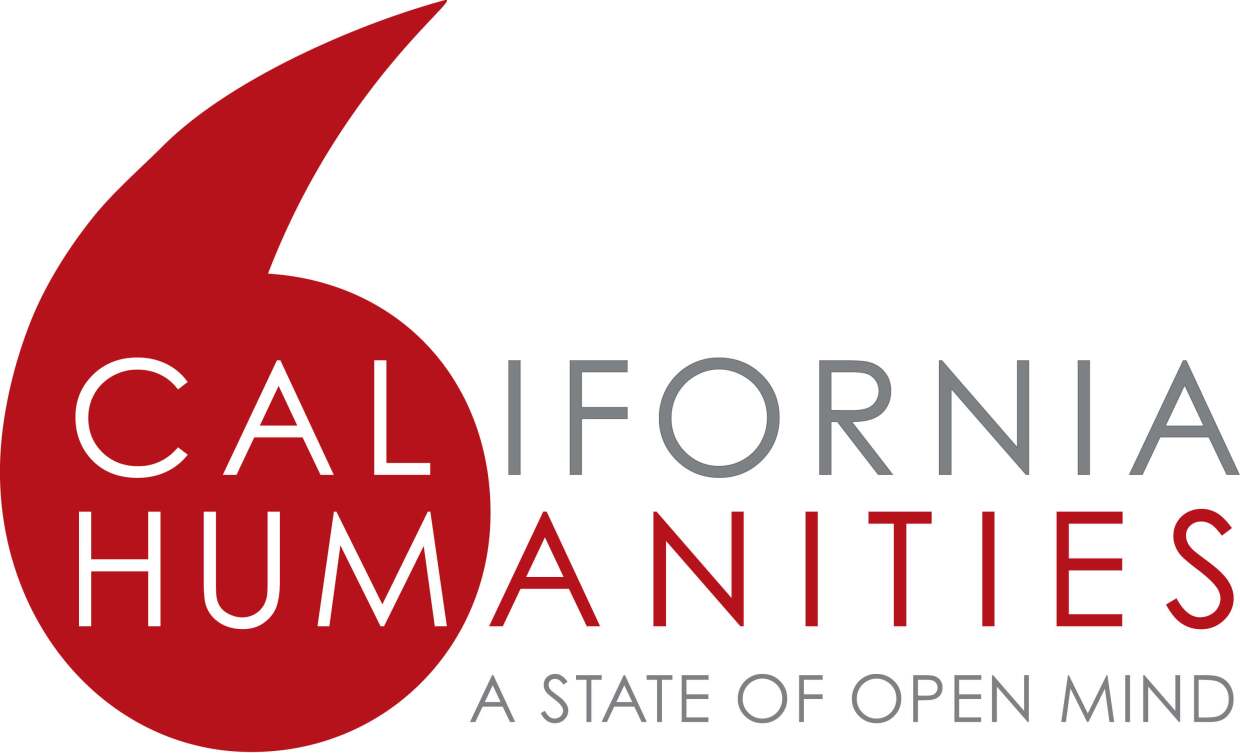
This project was made possible in part with support from California Humanities, a non-profit partner of the National Endowment for the Humanities. Visit calhum.org.





